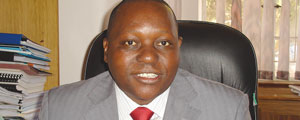
The Parliament of Zimbabwe must be applauded for its latest decision to conduct public hearings on the Electoral Amendment Bill that was recently passed by the Senate and is before the National Assembly. This followed a huge outcry from civil society groups that felt passage of the Bill in the Senate had violated constitutional provisions to do with consulting the public first before draft legislation is passed by Parliament. The Zimbabwe Election Support Network, a coalition of 31 independent non-governmental organisations that have been observing all aspects of electoral processes in Zimbabwe since 2000, took the lead in organising a meeting of civil society organisations that came up with resolutions calling on Parliament to respect Section 141 of the Constitution that requires the legislative branch of Government to ensure that interested parties are consulted about Bills being considered by Parliament. Another election watchdog, the Electoral Resource Centre, went as far as presenting a petition to Parliament on the matter. This was in fulfilment of Section 149 of the Constitution that accords every citizen and permanent resident of Zimbabwe the right to petition Parliament to consider any matter within its authority, “including the enactment, amendment or repeal of legislation”. The Speaker of the National Assembly Hon Jacob Mudenda therefore made the right decision to authorise the Justice, Legal and Parliamentary Affairs Portfolio Committee to conduct public hearings in all the country’s 10 provinces on this important draft piece of legislation. Failure to do so could have resulted in someone approaching the Constitutional Court to stop enactment of the Bill into law citing violation of his/her rights as provided for under Section 141 of the Constitution. The public hearings are set for Harare, Rushinga, Gweru, Bulawayo, Plumtree, Masvingo Urban, Nyika, Mutare and Mutasa between the period May 2 to 7 2014. These are the areas the committee is able to cover given resource constraints. Citizens and groups unable to attend the hearings can still make written submissions to Parliament. Citizens and stakeholder representative bodies must therefore take advantage of these hearings and make informed submissions that can influence the content of the electoral law. It will be too late to try and change the law once we approach elections in 2018. There are several areas which analysts feel have not been adequately addressed by the Bill in its current form. They include issues to do with the independence of the electoral management body, giving all Zimbabweans the right to vote, making it easier for civil society groups to conduct voter education and addressing gender equality in our electoral processes. Civil society groups say the Bill must provide for the full independence of the Zimbabwe Electoral Commission (Zec) by establishing an independent reporting mechanism such as reporting to Parliament. The Act at the moment places the Commission largely under the control of the Minister of Justice. This does not fulfil Section 235 of the Constitution that emphasises the independence of commissions such as the Zec. Women’s representative groups say the Bill must clearly state the gender equality provisions in party candidate lists and also ensure that office bearers for the nomination process include the leadership of women’s wings and assemblies to sign nomination papers. Civil society groups are calling on the authorities to ensure that legal provisions are included to allow all Zimbabwean citizens, including those in the Diaspora, to vote. This is in line with Section 155 (2) of the Constitution that compels the State to ensure that all eligible citizens are registered as voters and have an opportunity to vote. Related to this is the call to reinstate in the Bill provisions governing special voting. Rather than doing away with special voting due to the chaos experienced in the last election, civil society would like to see mechanisms put in place to ensure smooth administration of the process. Section 155 of the Constitution makes it an obligation on the part of the State to facilitate voting by persons with disabilities or special needs. Organisations representing people with disabilities would like to see provisions in the Bill that provide for accessible formats for voting and access to voter education for the visually impaired and the deaf. They are also calling for democratic processes for the nomination of senators representing people with disabilities. Another recommendation is to repeal the Referendums Act in order for provisions to do with referendums to be included in the same Electoral Act so as to comply with Section 157 of the Constitution. It is my hope that the planned hearings will result in informed submissions that will influence the enactment of a law that is constitutional and satisfies the principles of a sound electoral system as outlined under Section 155 of the Constitution. A good electoral law is the starting point of an uncontested electoral outcome.











